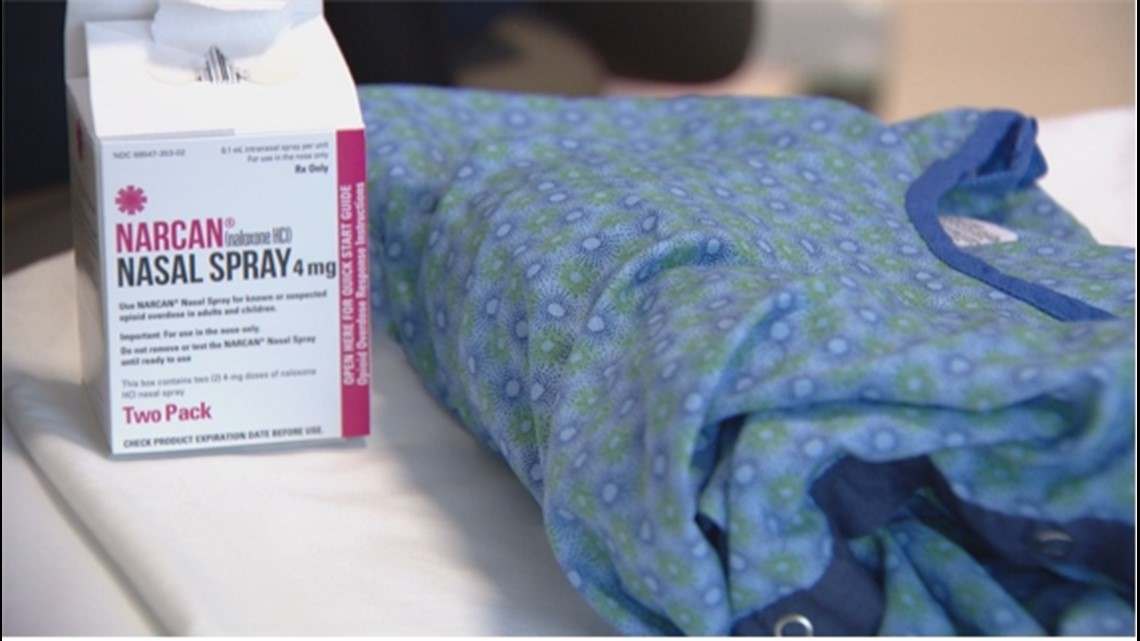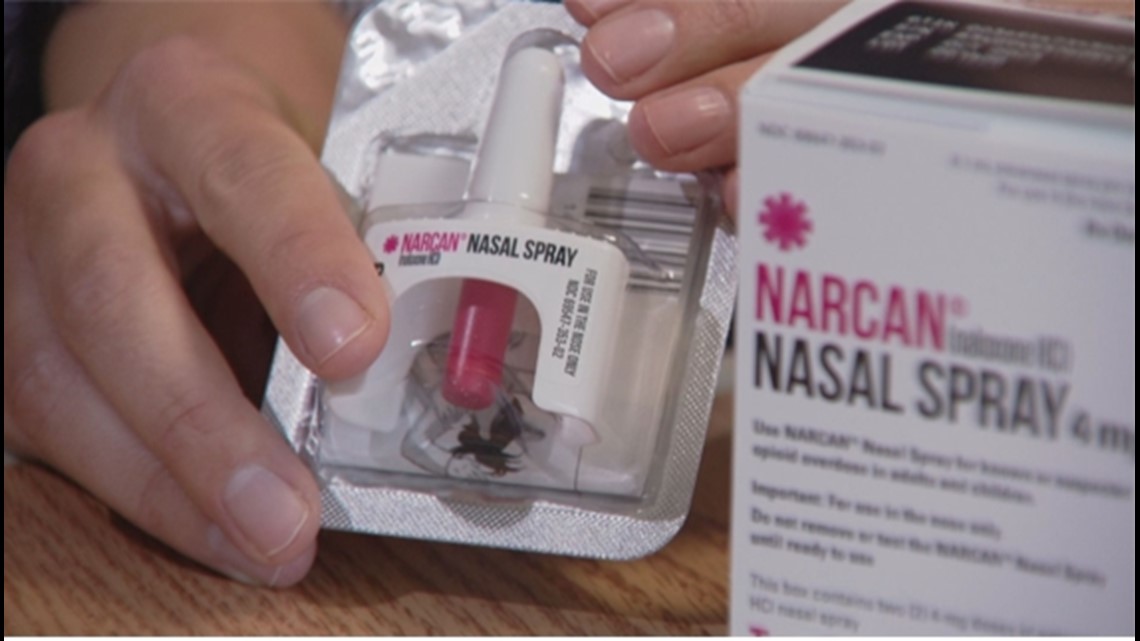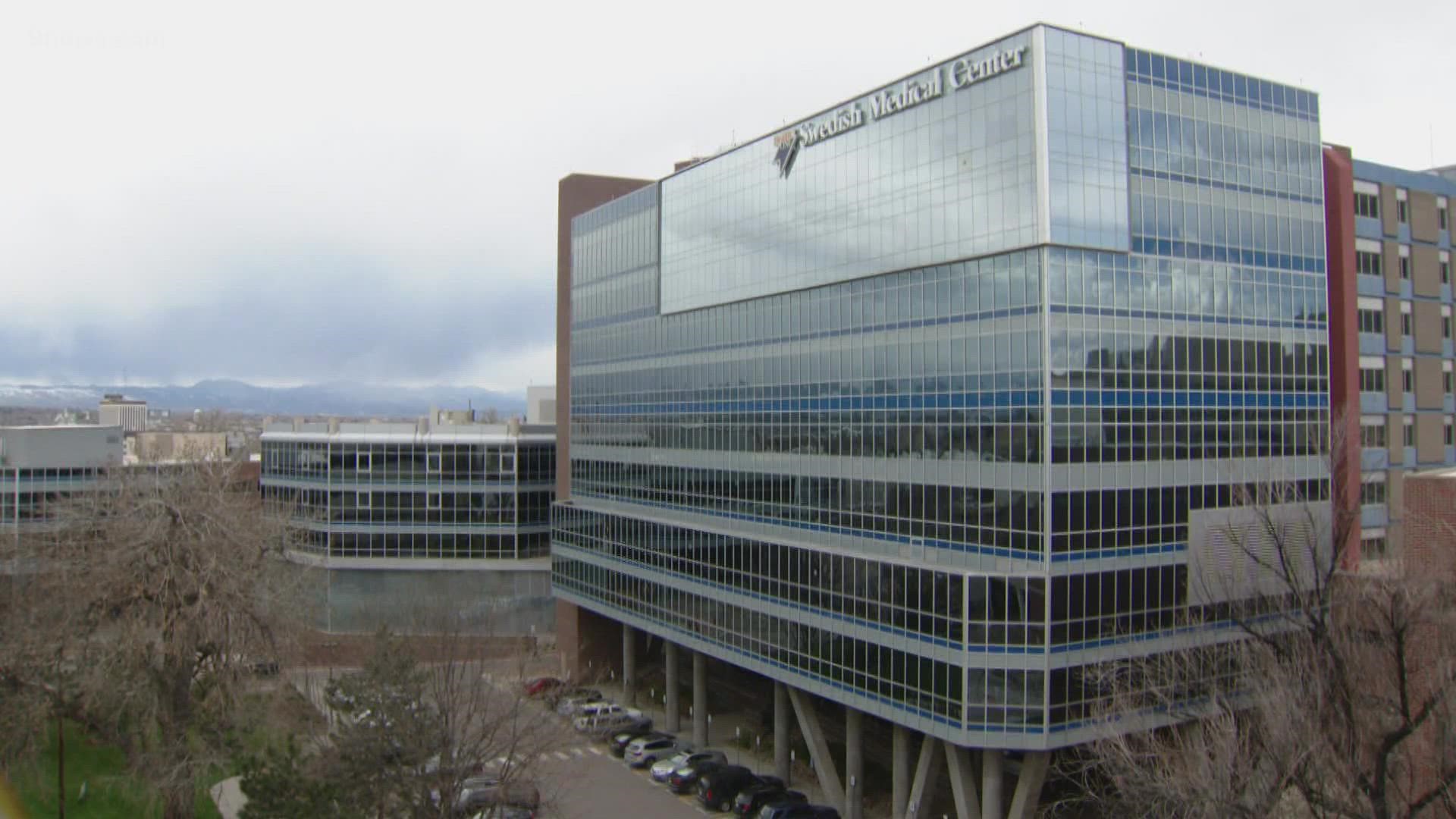ENGLEWOOD, Colo. — If staff at Swedish Medical Center isn't treating COVID-19 patients, they're likely tackling another crisis.
"Our opioid crisis has never been worse here in Colorado and across the entire nation," said Dr. Don Stader, an Emergency and Addiction Medicine Physician at Swedish. "I think that was really driven by COVID, which has caused a lot of people to struggle with mental health issues that depression, anxiety, sadness about, about what has transpired or or, you know, fear about the future."
According to the Colorado Health Institute (CHI), opioid overdoses rose by 54% in 2020, which accounted for nearly two in three overdose deaths in Colorado.
There were 798 reported deaths involving prescription opioids, according to CHI.
"As we've seen a doubling of the opioid crisis, we need to double down on our own efforts to address it because that's really the only way that we'll get out of it," Dr. Stader said.
Over the last year, an initiative to both reduce the chances of addiction and treat it has grown at Swedish Medical Center.


Dr. Stader, who is also the chair of the Colorado Naloxone Project, led the way to reduce the usage of opioids when treating patients in the hospital's emergency department.
Since 2016, he says opioid usage there has reduced by 70%.
"What decreased use of opioids does is it creates less patients who develop an opioid use disorder or a problem with addiction," he said.
He adds that specifically what they've done at Swedish is set up a program where they start patients that come in with an addiction issue on buprenorphine, a medication used to treat and get people out of the addictive cycle.
In the case of reducing the treatment of opioids, he says they use multi-modal therapies. He uses the scenario of someone coming in with a broken femur as an example of how it works.
"In the past, we would have just used fentanyl or Dilaudid or morphine and given patients continuous doses of that until they had gone through their surgery and then after the surgery, they'd get more doses. And that was a setup for exposing patients to the risk of opioids," he explained, saying now they use Tylenol or ibuprofen. "Most importantly, a numbing shot where we go in and we find the nerve that gives you sensation and we numb that up. So that pain is literally not felt and we can do all that without exposing patients to the risk of opioids."
After surgery, he says the staff is much more judicious to where instead of prescribing a patient with a month's worth of prescription, they may go home with five days or a week or only what they need to get them through the worst pain, he explained.


If someone is identified to be at risk of overdose from an addiction or using chronic pain medicines, they are sent home with a life saving medicine called naloxone, which reverses the effects of an overdose.
In 2022, Dr. Stader would like to see the initiative in the entire hospital.
"So that people who are coming out of surgery and at risk for overdose might get it so that people who are admitted to the hospital with, let's say, a pneumonia or an infection might go home with the naloxone as well," he said.
He also hopes to expand the treatment of addiction next year.
"We have a tremendous problem and a growing need for treating alcohol use disorders, people who are now drinking way too much and there are treatments that we can provide from a medical standpoint, such as Vivitrol to patients to help them drink less. And that's something that I'm very excited to explore in 2022," he said.
He adds that their Recovery Support Specialist Program has serviced more than 300 people with alcohol use disorders, opioid use disorders and more.
SUGGESTED VIDEOS: Latest from 9NEWS

